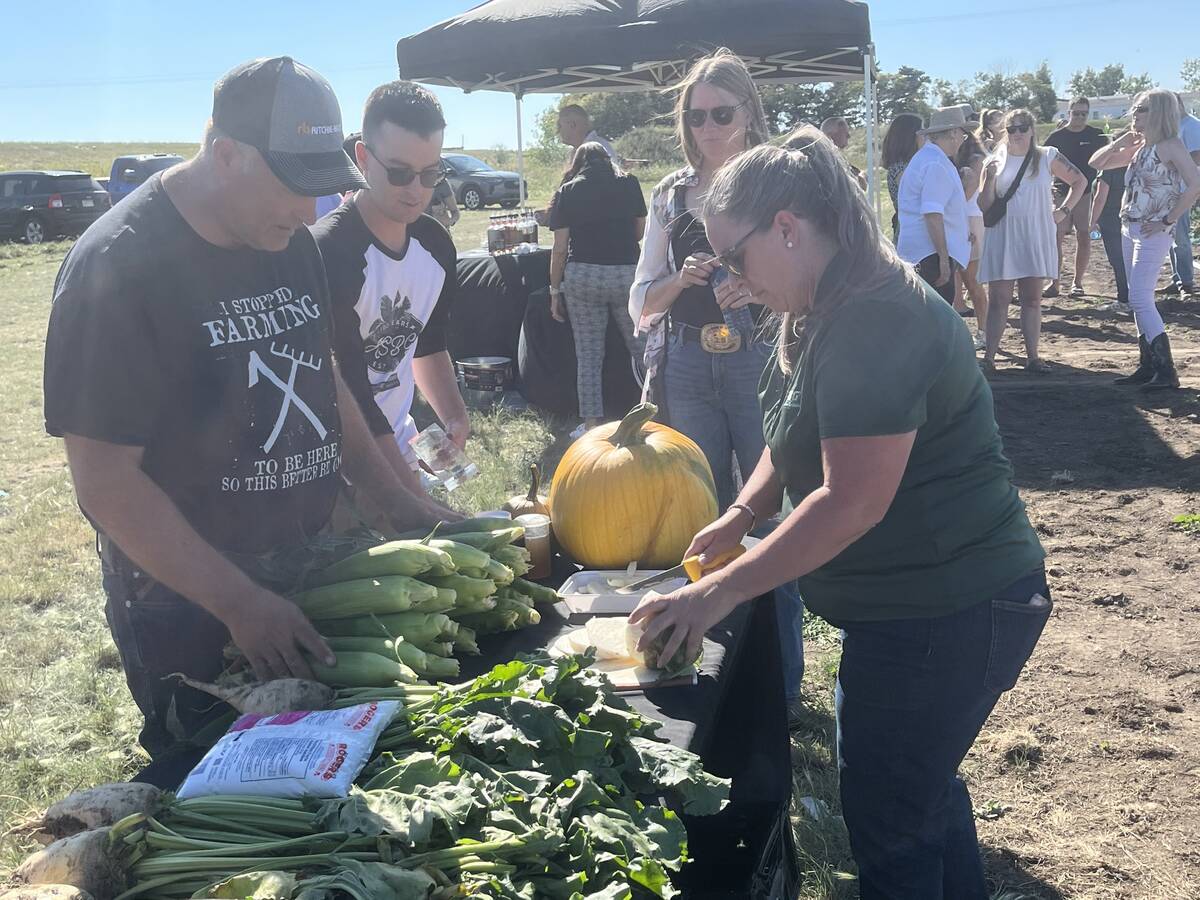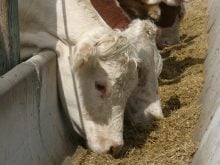Mandatory country-of-origin labelling for beef, hogs and other perishable produce that is scheduled to take effect in the United States in September 2004 would cost the American farm economy billions of dollars, economists are telling the U.S. government.
A study by Sparks Companies Inc. that was delivered to the U.S. Department of Agriculture April 9 predicted losses in the beef and pork sectors alone of as much as $2.5 billion US.
A study done for the Canadian pork industry by Canadian and American analysts reported the same day that mandatory COOL laws would mean big losses for the American industry.
Read Also

Alberta farm lives up to corn capital reputation
Farm to Table Tour highlighting to consumers where their food comes from features Molnar Farms which grows a large variety of market fruits and vegetables including corn, with Taber being known as the Corn Capital of Canada.
It said more than 1,000 smaller independent farms that depend on Canadian weanlings likely would go out of business and be replaced by large integrators. As many as five American packing plants that process Canadian hogs could go out of business and hog production in North America would increase.
As many as 4,500 direct packing plant jobs could disappear, with another 8,000 downstream jobs put at risk.
And hog prices would fall.
“It is estimated that North American hog prices will be approximately 30 percent lower than they would have otherwise been without the implementation of COOL,” said the study by the George Morris Centre of Guelph, Ont., and Virginia State University.
They assumed that country-of-origin labelling would virtually stop the flow of Canadian pigs to U.S. feeders or slaughter plants. As many as six million pigs now move south in a year.
The study said Iowa would be particularly affected, since the U.S. herd would have to increase to make up for the loss of Canadian supplies and many of those pigs would be raised in the Mid-west state.
“This will result in increased manure production of almost 2.1 million tons in the U.S., particularly in Iowa, as a result of COOL.”
As well, the study predicted that many of the pigs now sent south for finishing and slaughter would be finished, slaughtered and processed in Canada. Increased pork products would then flow south in competition with American products.
While products sold in stores would have to be labelled, food for restaurants would not, so Canadian imports could be concentrated on the food services sector.
The 2002 U.S. farm bill included a provision that now-voluntary country-of-origin rules will be made mandatory in September 2004. Members of Congress said they were doing this to give their farmers an advantage over imports.
A growing number of American critics, including food processors, retailers and many farm groups, say it would be a disaster for them.
Canada, Mexico and a coalition of other trading countries are threatening to challenge the mandatory labelling rule as an illegal trade barrier if it comes into effect.
Meanwhile, critics are trying to smother the plan with predictions of multi-billion dollar costs, bureaucracy and dislocation.
The Sparks study warned that it could take up to $50 out of the price of each head of cattle sold.
In addition, the country would have to establish a huge tracking and verification bureaucracy. The USDA has estimated the administrative cost will reach at least $2 billion in the first year.
The Sparks study reinforced the point.
“To support any claim by retailers regarding country of origin, all segments in the supply chain will need to develop and execute a system for gathering, storing and communicating information and data pertinent to the origin of all covered products moving through each supply chain,” it said.
A segregation system also will be required.
“Meeting those requirements will be difficult because there are no industry or government standards or definitions to satisfy all the complex requirements necessary to satisfy the origin labelling law.”














